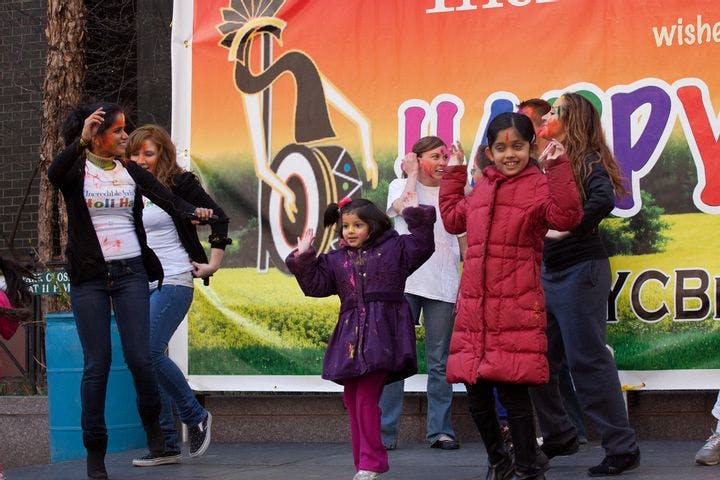Spring 2009
India's Pilgrims
– Vikram Johri
Vikram Johri on the Indian diaspora.
Amitav Ghosh’s excellent 2008 novel Sea of Poppies acquainted readers with early-19th-century India, delving into the lives of “coolies”—indentured laborers—who were transported to islands as distant as Fiji and Mauritius to work on British plantations, even after slavery was outlawed in the British Empire in 1834. When I picked up Minal Hajratwala’s Leaving India, I was delighted at the prospect of reading a tale about a real family from the state of Gujarat that spread across the globe. The book did not disappoint. It is a fascinating study of a few of the emigrants whose tentative steps eventually resulted in today’s Indian diaspora of as many as 30 million people.
Hajratwala, a journalist who currently lives in San Francisco, begins by drawing an elaborate portrait of her paternal clan, the Solankis. According to the varna system that designates social standing, Hindus descended from four distinct groups: Brahmins (priests), Kshatriyas (warriors), Vaishyas (artisans), and Shudras (laborers). The Solankis are Kshatriyas, and Hajratwala builds on this seemingly inconsequential fact to narrate an account, based on community lore, of how her ancestors turned from warriors to weavers, and how that dovetails with her paternal great-grandfather’s intrepid journey in 1909 to seek his fortune in Fiji. There he worked as a tailor—a first step on the way to building one of the South Pacific’s largest department stores.
Hajratwala’s maternal grandfather, Narotam, also left India to improve his lot. In 1930, he walked with Gandhi during the famous march to Dandi to protest a colonial salt tax. A year later, to support his young family, Narotam joined the Gujarati community in Fiji and began sewing women’s clothes. Eventually, he and his brother opened a store that sold ready-made clothing. His last child, Bhanu (the author’s mother), was born in 1946, a year before India gained independence from Britain.
It is a tribute to Hajratwala’s writing that she is able to coalesce the disparate factions of her family into a satisfying whole. And we are not even halfway there. It’s 1963, and a young man is about to make use of the recently relaxed U.S. rules for foreigners wishing to study in America. Bhupendra, the author’s father, enrolled at the University of Colorado, Boulder, to study manufacturing. He was among the first generation of Asian immigrants to come to the United States for skills training—and permanently change the composition of the country.
The families arranged an alliance between Bhupendra and Bhanu, who was still in Fiji at the time. The two had nothing in common except the “Gujarati from Fiji” tag. He was stern and no-nonsense; she was sweet and artistic. The wedding was hastened so that Bhupendra could return to the United States in time for the start of the new school year. The newlyweds haltingly made their lives in America, which required numerous adjustments, large and small. When she first arrived, Bhanu, not a vegetarian, was nevertheless aghast at the bloody look of the meat on offer—especially beef, which she had never tasted—and for a whole day ate nothing but chevdo, a traditional Indian snack mix.
When the author's mother arrived in the United States, she was aghast at the bloody look of the meat on offer.
The day Hajratwala was born, in 1971, her father sent out three telegrams, one each to Fiji, Toronto, and London. He also received a telegram offering him an academic position in New Zealand. And so this peripatetic family was again propelled to new shores. “Gain and loss, give and take: These are the fundamental tropes of migration, the ebbs and flows that are as certain as travel itself,” Hajratwala writes.
Perhaps the most prominent symbol of change in her family was the cultural openness in America that allowed Hajratwala to come out as a lesbian to her parents. It may be the limited scope of the book that prevents Hajratwala from fully exploring how immigrant communities handle the explosive subject of homosexuality. Yet her spirited and sympathetic representation of the rapidly expanding Indian diaspora testifies to the truth of the Indian adage, “What Destiny writes, neither human nor god may put asunder.”
* * *
Vikram Johri is a freelance writer living in Delhi. His reviews have appeared in numerous publications, including The Christian Science Monitor, The Philadelphia Inquirer, and The Chicago Sun-Times.
Reviewed: Leaving India: My Family’s Journey From Five Villages to Five Continents by Minal Hajratwala, Houghton Mifflin Harcourt, 430 pp, 2009.
Photo courtesy of Flickr/David Bledsoe
Up next in this issue
